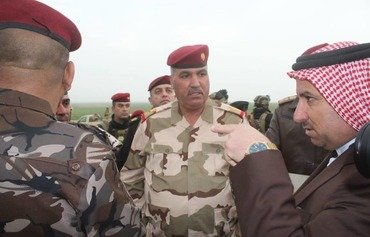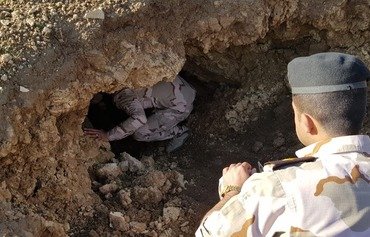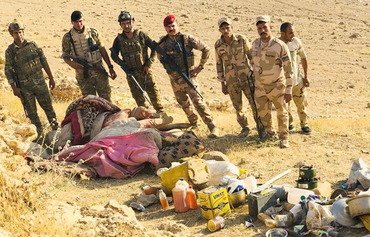The Ninawa Operations Command said Wednesday (April 24th) it has full security control of the border with Syria and the province's western desert.
"Sufficient units are deployed in the [area]," command media director Brig. Gen. Firas Bashar Sabri told Diyaruna.
But it is possible that small pockets of "Islamic State of Iraq and Syria" (ISIS) remnants are still active there, he added.
This follows statements by Iraqi parliamentarians from Ninawa over the last two days expressing concern over "increased ISIS activity" near the border.
"There has been an increase in terrorist attacks and kidnappings" in isolated and border villages in the districts of al-Baaj and Hatra, the sub-district of Tal Abta, and Thari al-Karah airport, said MP Ahmad Madloul al-Jarba on April 22nd.
He called on the government to "beef up security units in those areas".
Large units of army, local police and tribal forces are deployed along the border, according to a well-thought out plan and per instructions from the Joint Operations Command and the Defence Ministry, Sabri said.
"Our soldiers are securing the border strip and holding it under tight control," he said.
Drones are continuously patrolling these areas, he added, and intelligence forces are providing the operations command with timely data that guide pre-emptive operations against enemy bases.
Small ISIS pockets remain active
However, ISIS "has not been completely eliminated in the desert and still maintains some pockets and secret cells -- albeit very few in number -- that from time to time carry out attacks", Sabri said.
"Desert villages are far apart, with sometimes 10 kilometres separating one village from another, and some of them are very sparsely populated," he said.
It is difficult to fully secure those villages and deploy security forces there, especially since the residents are shepherds who do not settle down in one site, he said.
"Security campaigns to find and strike terrorist hideouts continue based on the intelligence effort, which has become an active component of our operations," he said.
"ISIS is finished as an organisation and an armed force, and it can no longer carry out any major terror attacks," he said.

![Iraqi soldiers from the 20th Infantry Division are seen during a security campaign in early 2019 to track down ISIS remnants in western Ninawa. [Photo courtesy of the Iraqi Defence Ministry]](/cnmi_di/images/2019/04/24/17808-Iraq-Ninawa-security-600_384.jpg)






